23 start with H start with H
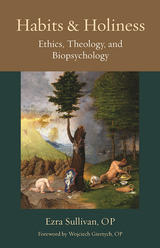
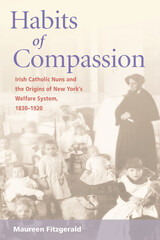
The Irish-Catholic Sisters accomplished tremendously successful work in founding charitable organizations in New York City from the Irish famine through the early twentieth century. Maureen Fitzgerald argues that their championing of the rights of the poor—especially poor women—resulted in an explosion of state-supported services and programs.
Parting from Protestant belief in meager and means-tested aid, Irish Catholic nuns argued for an approach based on compassion for the poor. Fitzgerald positions the nuns' activism as resistance to Protestantism's cultural hegemony. As she shows, Roman Catholic nuns offered strong and unequivocal moral leadership in condemning those who punished the poor for their poverty and unmarried women for sexual transgression. Fitzgerald also delves into the nuns' own communities, from the class-based hierarchies within the convents to the political power they wielded within the city. That power, amplified by an alliance with the local Irish Catholic political machine, allowed the women to expand public charities in the city on an unprecedented scale.
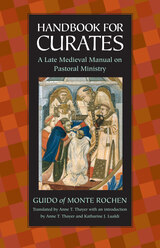
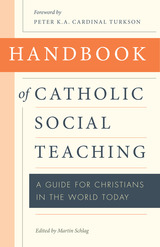
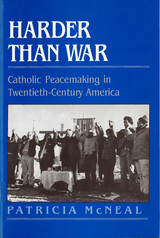
During the Viet Nam War, Catholic Workers burned their draft cards and turned from nonviolence to resistance by practicing civil disobedience. Daniel and Philip Berrigan escalated that resistance when they destroyed draft files, and symbolically poured blood over and hammered nuclear weapons to awaken the national conscience to the life-ending effects of nuclear warfare.

What, exactly, does it mean to be human? It is an age-old question, one for which theology, philosophy, science, and medicine have all provided different answers. But though a unified response to the question can no longer be taken for granted, how we answer it frames the wide range of different norms, principles, values, and intuitions that characterize today's bioethical discussions. If we don't know what it means to be human, how can we judge whether biomedical sciences threaten or enhance our humanity?
This fundamental question, however, receives little attention in the study of bioethics. In a field consumed with the promises and perils of new medical discoveries, emerging technologies, and unprecedented social change, current conversations about bioethics focus primarily on questions of harm and benefit, patient autonomy, and equality of health care distribution. Prevailing models of medical ethics emphasize human capacity for self-control and self-determination, rarely considering such inescapable dimensions of the human condition as disability, loss, and suffering, community and dignity, all of which make it difficult for us to be truly independent.
In Health and Human Flourishing, contributors from a wide range of disciplines mine the intersection of the secular and the religious, the medical and the moral, to unearth the ethical and clinical implications of these facets of human existence. Their aim is a richer bioethics, one that takes into account the roles of vulnerability, dignity, integrity, and relationality in human affliction as well as human thriving. Including an examination of how a theological anthropology—a theological understanding of what it means to be a human being—can help us better understand health care, social policy, and science, this thought-provoking anthology will inspire much-needed conversation among philosophers, theologians, and health care professionals.

Health Care Ethics is a comprehensive study of significant issues affecting health care and the ethics of health care from the perspective of Catholic theology. It aims to help Christian, and especially Catholic, health care professionals solve concrete problems in terms of principles rooted in scripture and tested by individual experience; however, its basis in real medical experience makes this book a valuable resource for anyone with a general interest in health care ethics.
This fifth edition, which includes important contributions by Jean deBlois, C.S.J., considers everyday ethical questions and dilemmas in clinical care and deals more deeply with issues of women's health, mental health, sexual orientation, artificial reproduction, and the new social issues in health care. The authors devote special attention to the various ethical theories currently in use in the United States while clearly presenting a method of ethical decision making based in the Catholic tradition. They discuss the needs of the human person, outlining what it means to be human, both as an individual and as part of a community.
This volume has been significantly updated to include new discussions of recent clinical innovations and theoretical issues that have arisen in the field:
• the Human Genome Project• efforts to control sexual selection of infants• efforts to genetically modify the human genotype and phenotype• the development of palliative care as a medical specialty• the acceptance of non-heart beating persons as organ donors• embryo development and stem cell research• reconstructive and cosmetic surgery• nutrition and obesity• medical mistakes• the negative effects of managed care on the patient-physician relationship• recent papal allocution regarding care of patients in a persistent vegetative state and palliative care for dying patients

This fourth edition of Health Care Ethics provides a contemporary study of broad and major issues affecting health care and the ethics of health care from the perspective of Catholic teachings and theological investigation.
It aims to help Christian, and especially Catholic, health care professionals solve concrete problems in terms of principles rooted in Scripture and tested by individual experience.
Since the last edition of Health Care Ethics, there have been many changes in the fields of health care medicine and theology that have necessitated a fourth edition. Ashley and O'Rourke have revised their seminal work to address the publication of significant documents by the Church and the restructuring of the health care system.
Features of the revised fourth edition:
• Discusses significant Church documents issued since the third edition includes "The Splendor of Truth" (Veritatis Splendor), and the "Gospel of Life" (Evangelium Vitae); the "Instruction on the Vocation of Theologians"; the Catechism of the Catholic Church; and the Revised Ethical and Religious Directives for Catholic Health Services.
• Examines the implications of managed care techniques.
• Probes such changes in the practice of medicine as the new emphasis on preventive care, the involvement of individuals in their own care, greater use of pharmaceuticals in psychiatry, and the greater role of genetics in diagnosis and prognosis.
• Explores the quest for more compassionate care of the dying.
• Updates the bibliography.
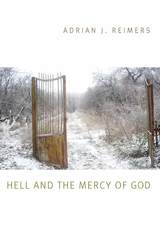
Catholic philosopher Adrian Reimers takes on these challenges in Hell and the Mercy of God, drawing on relevant sources from Aristotle to Aquinas, from Dante to Tolkien, from Wagner to John Paul II, along with Billie Holliday, The Godfather, and the music of George Gershwin. He presents a philosophical theology, grounded in Scripture, of the nature of goodness and evil, exploring various types of pain, the seven capital sins, the resurrection of the body, the meaning of mammon, the core meaning of idolatry, the psychology of Satan and those who choose his path, and the moral responsibility of the human person.
These reflections illuminate the intelligibility of orthodox Catholic teachings on the goodness of God and the reality of hell. Hell is not an arbitrary imposition set up for human rule-breakers but a continuation of a freely chosen way of life manifest even in this world. Examples from history, art, and contemporary culture lead the author to conclude that anyone who does not believe in the reality of hell is not paying enough attention. And yet, mercy and hope remain triumphant, because, just as Christ offers entrance into paradise to the “good thief” Dismas on the cross, God continues to offer repentance and salvation to all who live.
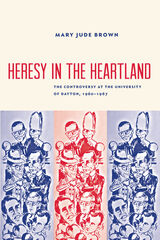
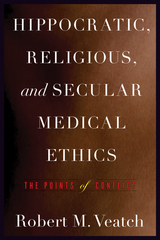
Where should physicians get their ethics? Professional codes such as the Hippocratic Oath claim moral authority for those in a particular field, yet according to medical ethicist Robert Veatch, these codes have little or nothing to do with how members of a guild should understand morality or make ethical decisions. While the Hippocratic Oath continues to be cited by a wide array of professional associations, scholars, and medical students, Veatch contends that the pledge is such an offensive code of ethics that it should be summarily excised from the profession. What, then, should serve as a basis for medical morality?
Building on his recent contribution to the prestigious Gifford Lectures, Veatch challenges the presumption that professional groups have the authority to declare codes of ethics for their members. To the contrary, he contends that role-specific duties must be derived from ethical norms having their foundations outside the profession, in religious and secular convictions. Further, these ethical norms must be comprehensible to lay people and patients. Veatch argues that there are some moral norms shared by most human beings that reflect a common morality, and ultimately it is these generally agreed-upon religious and secular ways of knowing—thus far best exemplified by the 2005 Universal Declaration on Bioethics and Human Rights—that should underpin the morality of all patient-professional relations in the field of medicine.
Hippocratic, Religious, and Secular Medical Ethics is the magnum opus of one of the most distinguished medical ethicists of his generation.
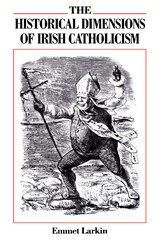
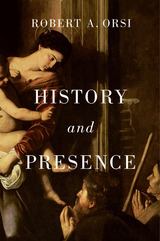
A Choice Outstanding Academic Title of the Year
Beginning with metaphysical debates in the sixteenth century over the nature of Christ’s presence in the host, the distinguished historian and scholar of religion Robert Orsi imagines an alternative to the future of religion that early moderns proclaimed was inevitable.
“Orsi’s evoking of the full reality of the holy in the world is extremely moving, shot through with wonder and horror.”
—Caroline Walker Bynum, Common Knowledge
“This is a meticulously researched, humane, and deeply challenging book. The men and women studied in this book do not belong to ‘a world we have lost.’ They belong to a world we have lost sight of.”
—Peter Brown, Princeton University
“[A] brilliant, theologically sophisticated exploration of the Catholic experience of God’s presence through the material world… On every level—from its sympathetic, honest, and sometimes moving ethnography to its astute analytical observations—this book is a scholarly masterpiece.”
—A. W. Klink, Choice
“Orsi recaptures God’s breaking into the world … The book does an excellent job of explaining both the difficulties and values inherent in recognizing God in the world.”
—Publishers Weekly
“This book is classic Orsi: careful, layered, humane, and subtle…a thought-provoking, expertly arranged tour of precisely those abundant, excessive phenomena which scholars have historically found so difficult to think.”
—Sonja Anderson, Reading Religion
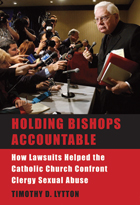
The sexual abuse of children by Catholic clergy is arguably the most acute crisis Catholicism has faced since the Reformation. The prevalence of clergy sexual abuse and its shocking cover-up by church officials have obscured the largely untold story of the tort system’s remarkable success in bringing the scandal to light, focusing attention on the need for institutional reform, and spurring church leaders and public officials into action.
Stories of the tort system as an engine of social justice are rare. Holding Bishops Accountable tells one such story by revealing how pleadings, discovery documents, and depositions fueled media coverage of the scandal. Timothy Lytton shows how the litigation strategy of plaintiffs’ lawyers gave rise to a widespread belief that the real problem was not the actions of individual priests but rather the church’s massive institutional failure. The book documents how church and government policymakers responded to the problem of clergy sexual abuse only under the pressure of private lawsuits.
As Lytton deftly demonstrates, the lessons of clergy sexual abuse litigation give us reason to reconsider the case for tort reform and to look more closely at how tort litigation can enhance the performance of public and private policymaking institutions.
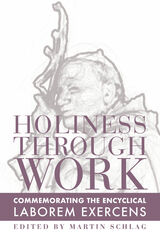
This book is a timely contribution to the field of scholarship that focuses on Catholic Social Thought and is ideally suited for graduate studies and the reader interested in more serious questions in Christian theology.
Giulio Maspero, "The Bible and the Fathers of the Church on Work"
Patricia Ranft, "Work Theology in the High Middle Ages"
Angela Franks, "John Paul II's Metaphysics of Labor"
Deborah Savage, "Confronting a Technocratic Future: Women's Work and the Church's Social Vision"
Martin Schlag, "Contemplation at Work: A Theological Conversation Between John Paul II and Josemaría Escrivá"
Richard Turnbull, "Laborem Exercens: A Protestant Appreciation"
Michael Naughton, "Good Work: Insights from the Subjective Dimension of Work"
Christopher Michaelson, "Subjects and Objects in Meaningful Work"
Javier Ignacio Pinto Garay and Alvaro Pezoa Bissieres, "The Worker and the Transistor: The Dignity of Work and Business Ethics in Global Corporate Practices"
Gonzalo Flores-Castro Lingán, "The Real Work: Making the Encyclical Laborem Exercens Operational"
Geoffrey C. Friesen, "Laborem Exercens and the Subjective Dimension of Work in Economics and Finance"
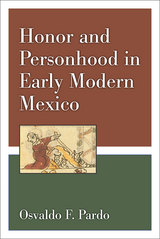
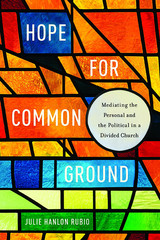
Much like the rest of the country, American Catholics are politically divided, perhaps more so now than at any point in their history. In this learned but accessible work for scholars, students, and religious and lay readers, ethicist Julie Hanlon Rubio suggests that there is a way beyond red versus blue for orthodox and progressive Catholics. In a call for believers on both sides of the liberal-conservative divide to put aside labels and rhetoric, Rubio, a leading scholar in marriage and family for more than twenty years, demonstrates that common ground does exist in the local sphere between the personal and the political.
In Hope for Common Ground, Rubio draws on Catholic Social Thought to explore ways to bring Catholics together. Despite their differences, Catholics across the political spectrum can share responsibility for social sin and work within communities to contribute to social progress. Rubio expands this common space into in-depth discussions on family fragility, poverty, abortion, and end-of-life care. These four issues, though divisive, are part of a seamless worldview that holds all human life as sacred. Rubio argues that if those on different sides focus on what can be done to solve social problems in “the space between” or local communities, opposing sides will see they are not so far apart as they think. The common ground thus created can then lead to far-reaching progress on even the most divisive issues—and help quiet the discord tearing apart the Church.


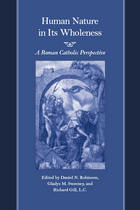
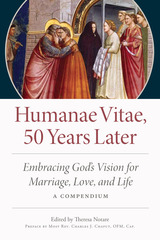
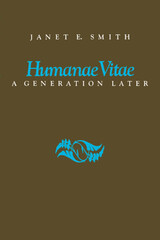

The major humanitarian crises of recent years are well known: the Shoah, the killing fields of Cambodia, the Rwandan genocide, the massacre in Bosnia, and the tsunami in Southeast Asia, as well as the bloody conflicts in South Sudan, Syria, and Afghanistan. Millions have been killed and many millions more have been driven from their homes; the number of refugees and internally displaced persons has reached record levels. Could these crises have been prevented? Why do they continue to happen? This book seeks to understand how humanity itself is in crisis, and what we can do about it.
Hollenbach draws on the values that have shaped major humanitarian initiatives over the past century and a half, such as the commitments of the International Committee of the Red Cross, Oxfam, Doctors Without Borders, as well as the values of diverse religious traditions, including Catholicism, to examine the scope of our responsibilities and practical solutions to these global crises. He also explores the economic and political causes of these tragedies, and uncovers key moral issues for both policy-makers and for practitioners working in humanitarian agencies and faith communities.
READERS
Browse our collection.
PUBLISHERS
See BiblioVault's publisher services.
STUDENT SERVICES
Files for college accessibility offices.
UChicago Accessibility Resources
home | accessibility | search | about | contact us
BiblioVault ® 2001 - 2024
The University of Chicago Press









